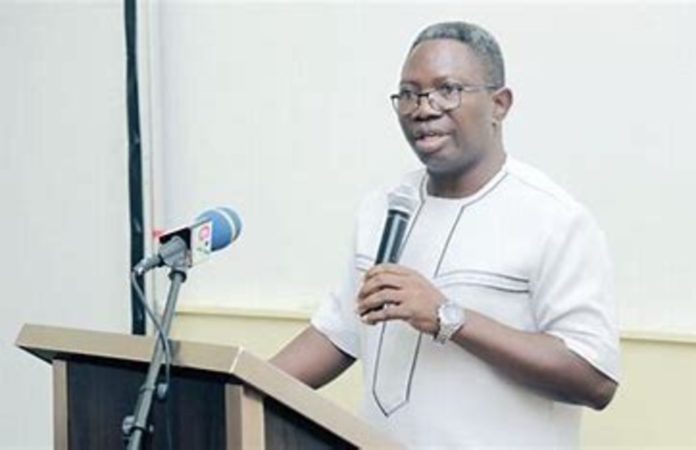The Ghana AIDS Commission has raised concerns about the rising rate of new HIV infections and the demographics most affected in the country.
The Commission underscored the urgent need for Ghana to implement strategies to achieve epidemic control.
From 2013 to 2023, Ghana experienced a 9.0% increase in its HIV population, with projections indicating a further 6.8% increase by 2030.
Despite a 14.8% reduction in new HIV infections, totaling 17,774 cases, the country also recorded 12,480 deaths due to AIDS, representing a 20.5% decrease in annual AIDS-related deaths from 2013 to 2023, with an anticipated further decline of 58.1% from 2023 to 2030.
Currently, Ghana’s total HIV population stands at 334,095, with the highest number of cases in Accra, the Ashanti region, and the Eastern region.
The Bono region reports the highest prevalence rate at 2.12%.
During the presentation of the 2023 national and sub-national HIV and AIDS estimates and projections at a press conference in Accra on Wednesday, Dr. Kyeremeh Atuahene, Director-General of the Ghana AIDS Commission, called for stringent measures to achieve epidemic control.
“Adults aged 25 and above constitute the majority of the HIV population, which is about 84.7 percent. You can see quite clearly that the bulk of the people either dying of AIDS, being newly infected and being one of the HIV population in the country lie between the ages of, 15 to 49.
“That’s where you see the bulk of the population. This population is an economically active population. These are the people who work and earn income to support the country as well as the dependent population in the country.”
“That is the aged and the children who are not working. I’m making this point because it shows quite clearly that HIV is a developmental issue. It’s an economic issue, and it’s also a business issue.
“And so we should remember that our ability to eliminate AIDS or end AIDS and achieve epidemic control in the country should be the business of everyone, and therefore, we need to work together,” Dr. Atuahene emphasized.
READ ALSO:


